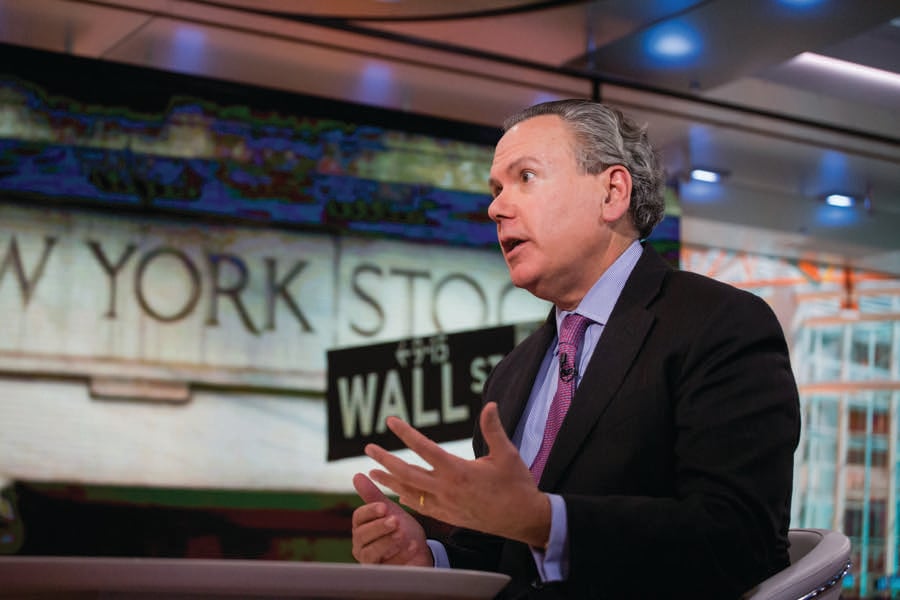Just before explaining why they
filed a lawsuit to kill the DOL fiduciary rule, every industry trade group is careful to assert that they, in fact, support its premise.
Yes, they want to do away with the Labor Department measure that would require financial advisers to act in the best interests of their clients in retirement accounts, but it would be hard for them to win public favor arguing they just don't want to have to put clients first.
They contend, instead, that they've been in favor of a fiduciary standard since just before Adam met Eve — or at least prior to 2010, when
the DOL first began its work.
SOFTENING THE BLOW
In a June 2 media conference call introducing the industry lawsuit, Ken Bentsen Jr., president and CEO of the Securities Industry and Financial Markets Association, tried to soften the blow of opposing a measure designed to ensure people get good investment advice on their nest eggs.
“The industry, including SIFMA, have long been on record, well-documented, in support of a uniform fiduciary standard of care for financial advisers when providing personalized investment advice,” Mr. Bentsen said. “The industry believes the client's best interest should be put first.”
Dale Brown, president and CEO of the Financial Services Institute, a co-plaintiff, said his organization also is squarely behind a fiduciary standard.
“Being pro-fiduciary is not something new to us or our members,” he said on the same media call.
And then came the “but.”
“But the Department of Labor's complex and unworkable rule will only harm the smaller investor it claims to protect,” Mr. Brown said.
(More: Dale Brown on why FSI is suing the DOL)
There it is, the favorite adjective of industry opponents: unworkable. They've put that label on the DOL rule since its first iteration in 2010.
But since then the rule has undergone a litany of changes, many of which specifically added more protections for the brokerage model in response to an avalanche of industry criticism.
BROKER-FRIENDLY CHANGES
For instance, the final rule explicitly states that proprietary products can be sold to clients. The agency also removed a list of preferred assets for retirement accounts, opening them up to the types of
high commission products independent broker-dealers (i.e., FSI members) like to sell. Of course, advisers would have to justify why they think nontraded real estate investment trusts, for instance, belong in a retirement account.
The DOL's changes to the final rule brought it closer to the standard envisioned by the Dodd-Frank financial reform law, which said fiduciary duty could not ban the sale of proprietary products or impose a continuing duty of care on brokers after a sale is made.
Still, the industry was not satisfied.
“Show me the fiduciary standard they like,” said Jon Lukomnik, managing partner at Sinclair Capital and co-author of “What They Do with Your Money” (Yale University Press, 2016).“Their actions speak louder than their words.”
A year ago, SIFMA did offer a way to modify the less-stringent suitability standard to which brokers now adhere and turn it into a best-interests standard.
Under the plan, brokers would have to disclose and manage investment-related fees and avoid or disclose and manage conflicts of interest. The standard would be enforced by the Financial Industry Regulatory Authority Inc., the industry-funded broker regulator.
PRIVATE RIGHT OF ACTION
The problem is that SIFMA is proposing to wordsmith a standard that even Finra chairman and chief executive Richard G. Ketchum said is not enough to protect investors.
“They're not for any best-interests standard,” said Knut Rostad, president of the Institute for the Fiduciary Standard. “They have rebranded their sales suitability standard.”
Finra enforcement doesn't strike the same fear into the hearts of financial firms as the private right of action contained in the DOL rule, which allows investors to file class-action lawsuits.
WAITING FOR THE SEC
What the industry really wants is to have the Securities and Exchange Commission act on the authority given to it to by Dodd-Frank to
promulgate a uniform fiduciary standard. But the five-person SEC has been hamstrung by a political split over a proposal, with two Republican commissioners in opposition and one of the Democrats non-committal.
The industry knows this. Waiting for the SEC to act leaves investment advice pretty much where these groups would like it to stay: status quo.
No matter how often industry leaders begin their attacks on the DOL rule by stating how much they support a best-interests standard, the bottom line is they are trying to kill the first regulation that would deliver it to investors.







